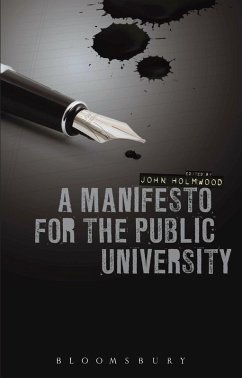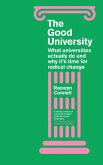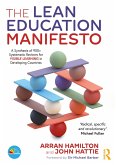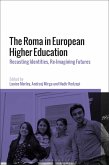This book is available as open access through the Bloomsbury Open Access programme and is available on www.bloomsburycollections.com.
The Browne report advocates, in effect, the privatisation of higher education in England. With the proposed removal of the current cap on student fees and the removal of state funding from most undergraduate degree programmes, universities are set for a period of major reorganisation not seen since the higher education reforms in the 1960s.
This book brings together some of the leading figures in Higher Education in the UK to set out what they see as the role of the university in public life. The book argues for a more balanced understanding of the value of universities than that outlined in the Browne Report. It advocates that they should not purely be seen in terms of their contribution to economic growth and the human capital of individuals but also in terms of their contribution to the public.
This book responds to the key debates that the Browne review and Government statements have sparked, with essays on the cultural significance of the university, the role of the government in funding research, inequality in higher education, the role of quangos in public life and the place of social science research. It is a timely, important and considered exploration of the role of the universities in the UK and a reminder of what we should value and protect in our higher education system.
The Browne report advocates, in effect, the privatisation of higher education in England. With the proposed removal of the current cap on student fees and the removal of state funding from most undergraduate degree programmes, universities are set for a period of major reorganisation not seen since the higher education reforms in the 1960s.
This book brings together some of the leading figures in Higher Education in the UK to set out what they see as the role of the university in public life. The book argues for a more balanced understanding of the value of universities than that outlined in the Browne Report. It advocates that they should not purely be seen in terms of their contribution to economic growth and the human capital of individuals but also in terms of their contribution to the public.
This book responds to the key debates that the Browne review and Government statements have sparked, with essays on the cultural significance of the university, the role of the government in funding research, inequality in higher education, the role of quangos in public life and the place of social science research. It is a timely, important and considered exploration of the role of the universities in the UK and a reminder of what we should value and protect in our higher education system.









